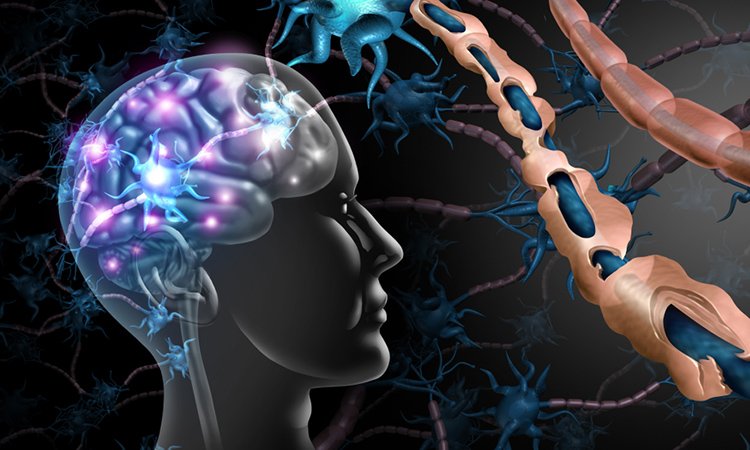Team identifies new potential approach to treat multiple sclerosis
Posted: 6 November 2020 | Victoria Rees (Drug Target Review) | No comments yet
Researchers have prevented immune cells from attacking myelin in mice, which stopped the progression of multiple sclerosis (MS).


Researchers have revealed a new way to prevent immune cells from attacking myelin, the protective layer surrounding nerve cells, thus halting the progression of multiple sclerosis (MS) in mouse models. The study was conducted at Thomas Jefferson University, US.
“There are many possible immune-activating antigens in the myelin sheath, but the biggest hurdle is that we do not know which component of myelin is triggering the immune response in MS patients,” said senior author Professor Abdolmohamad Rostami. “Previous studies have used single myelin antigens or combinations of antigens to prevent auto-immunity in animal models, but in humans they have had limited success.”
The researchers turned to cells called oligodendrocytes. These cells wrap their cell membrane around nerve cells to produce the myelin sheath. Tiny sacs called extracellular vesicles (EVs) can be harvested from cultured oligodendrocytes. The researchers found that these EVs contain almost all the relevant myelin antigens. With all of the antigens present, there would be a higher chance that these vesicles could halt the autoimmune attack on myelin.
“The neat thing about these EVs is that they give us an opportunity to treat the disease in an antigen-specific way, without having to know the exact identity of the target antigen,” explained Rostami. “It covers all the bases.”
The researchers were able to safely inject the EVs intravenously in three different mouse models of MS representing early and late stages of the disease. When administered before disease developed, the EVs had a prophylactic effect, preventing the onset of symptoms like decrease in mobility and paralysis. When given after disease onset, EVs significantly reduced severity of disease in all three models, to the point that the animals could walk again.
“The antigens involved in the auto-immune response can differ between MS patients and even change over time in an individual patient,” explained Rostami. “The fact that our approach was effective in different experimental models shows this could act as a universal therapy.”
Importantly, the researchers found that the experimental therapy only affected immune cells that were attacking the myelin layer. The rest of the immune system was intact and not weakened at all.
“This is a huge advantage of our antigen-specific method over current therapies, which are like a sledgehammer to the immune system,” said Rostami, “and what makes it so novel.”
The team found that they were able to isolate the vesicles from human-derived oligodendrocytes. These human vesicles, like those from mice, also contained multiple myelin antigens and therefore could have the same therapeutic effect in patients.
Rostami and his team are now working on getting the intravenous EVs approach patented, which they say could be a revolutionary step for MS treatment.
The study was published in Science Translational Medicine.
Related topics
Drug Development, Drug Targets, Neuroprotection, Neurosciences, Research & Development
Related conditions
Multiple Sclerosis (MS)
Related organisations
Thomas Jefferson University
Related people
Professor Abdolmohamad Rostami



